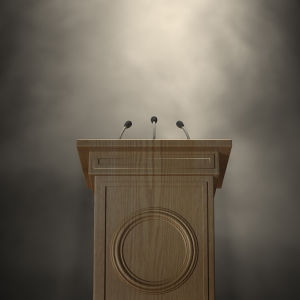As Republican presidential hopefuls head for Cleveland for 10 of them to debate one another other for the first time, here’s some advice: remember the power of the light touch. Bring a shiv, not a sledgehammer.
Not one of the contestants in Thursday’s match should think he is anything like mixed martial arts champion Ronda Rousey. She’s the American phenomenon who needed just 34 seconds Saturday night to destroy her opponent in Brazil. Thursday’s match is two hours long on Fox and could become an endurance contest for viewers. Neither audience nor combatants could take 120 minutes of what the remarkable Rousey inflicted on Bethe Correia.
All 10 presidential hopefuls will walk off the stage Thursday night when Bret Baier, Megan Kelly or Chris Wallace declare the long night at an end. No one will need a stretcher. Each in his own way is a pro at facing an audience. They’ve all taken plenty of punches in the public arena. No one’s going to cry on camera like this year’s British Open winner Zach Johnson and runner-up Louis Oosthuizen. Fellas, get ahold of yourselves.
So put a glove on those bare knuckles, candidates. That means you too, Donald Trump. Two hours of sustained hectoring will do you no good. The most memorable moments in presidential debates usually aren’t the ones where a candidate tries to launch a missile at an opponent. Ronald Reagan in 1980 delivered his “there you go again” to a flummoxed Jimmy Carter in an even tone with a knowing smile.
Carter, in contrast, tried to convince a vast national audience that Reagan was intent on winning the White House to inflict a nuclear Armageddon on the world. Carter stumbled when he tried to emphasize his point by saying his 13-year-old daughter, Amy, had told him “the other day” that nuclear weapons were the most important issue. If the audience and candidates Thursday stay quiet for a moment, they may be able to hear the echoes of the snickers that that night in Cleveland 35 years ago turned a close election into a glorious rout.
Candidates and their prep teams should not discount the seriousness of the typical viewer. Millions would have tuned in even without the curious effect reality show performer and generous Democratic donor Donald Trump brings to the event. This is the largest audience of engaged Republicans the candidates will have been exposed to in their political careers. There will be several million caucus and primary voters watching. Most of them are open to persuasion. Sharing some lofty ideas with the audience through the evening will help a candidate stand out. So will regular displays of optimism about America’s future. Bitter resentments are the provenance of the Democratic candidates, who will put them on display if they ever hold a debate among their contestants.
They also need to show how to they will take the fight to Hillary Clinton, still the likely Democratic nominee despite months of stumbles. Republicans want to nominate the next president, not pick the best foil for “Celebrity Apprentice.” The sideshow should not become the main event.
Nevertheless, the question persists, “What do you do about a problem like Donald Trump?” Remind him and the audience of the dizzying display of stands he’s taken on issues over not so many years. A candidate may want to concede that Trump has a brilliant mind until he makes it up. What rate are you thinking about for the wealth tax you proposed? Where would it start? Was it Harry Reid’s support for gun control that caused you to give him so much money?
As British writer Hugo Young said of a target, Trump possesses “a mind not so much open as permanently vulnerable to a succession of opposing certainties.”
The cleverest candidate will serve a well-timed, cheerful buffet of substance, self-regard and a garnish of scorn. Trump is a rich target, best raised by candidates contrasting their own record of achievement with his and his good friend Hillary Clinton. That’s what will remain with the audience when viewers return to their own realities.

